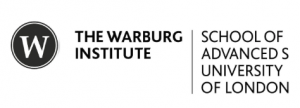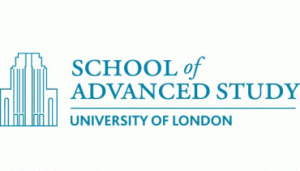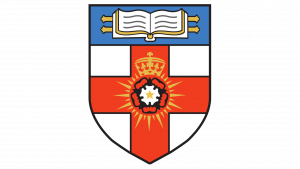Warburg Institute Frances A. Yates Long-Term Fellowship

The Warburg Institute is launching a new Curatorial Fellowship to engage specifically with the Institute’s Collection:
Plus projects related to our Artistic Programme. The awards provide financial support towards living and subsistence costs in London for nine to twelve months.
Yates Fellowships are intended for scholars at any stage of their post-doctoral career. The successful candidate will directly support the Collections or Artistic Programmes through work on one of the following specific projects:
Aby Warburg’s Zettelkästen
The Warburg Institute Archive holds a collection of 99 Zettelkästen (index or note card boxes) containing some 60,000 cards compiled by Aby Warburg during his lifetime. The collection was his main working tool for organising his ideas and collecting relevant material in sections and small folders; their titles are accessible through the WIA’s electronic catalogue. An in-depth analysis of the Zettelkästen as a whole remains a desideratum. A curatorial fellowship could enhance the existing catalogue and also shed more light on Warburg’s specific approach to note-taking and collecting information, in the form of a case study.
Refugee History
The Warburg Institute is the only institution to have fled Nazi Germany and to have been re-established outside the country. During the years of anti-Semitic persecution, the Institute played a major role in helping academic refugees from Germany and Austria. This chapter in the Institute's history is documented in its extensive archival collection of correspondence, which merits more detailed description. A curatorial fellowship could undertake this, while exploring the stories of academic and other refugees during the 1930s and 1940s.
Interpretation and identification of imagery
Within the Warburg’s Photographic Collection, the Eranos Collection of Jungian archetypes has yet to be included in the Warburg Iconographic Database. The Eranos iconography is extremely wide-ranging, from ancient Egypt to 9th-century Peru to medieval Europe to 19th-century New Ireland and more. The Frankfort Bequest of Mesopotamian and Egyptian material is more straightforward, and the subjects can be approached with the aid of books in the Warburg library. The glass slide collection comprises a very interesting selection of images, since they were chosen for lectures, and so have historiographical value too. A curatorial fellow working in any one of these areas would have a unique opportunity to develop their expertise and iconographical knowledge.
Libraries of 20th-century art historians
In addition to the legacy of Aby Warburg, the Warburg Library includes many books donated or bequeathed by other significant twentieth-century figures in the fields of art history, cultural history and intellectual history, such as Fritz Saxl and Gertrud Bing. These donations are rarely noted in the Library catalogue, but can be traced through the Library’s acquisition records. A curatorial fellow could enhance the provenance information in the Library catalogue, while also drawing together material towards a study of these scholars, their networks of contacts and their use of books.
Candidates should stipulate in their applications which of these projects would be most suited to their interests and skills
Fellows benefit from and contribute to the vibrant intellectual life of the Institute. Fellows may be asked to give a Work-in-Progress Seminar paper and are required to contribute the Institute’s blog: Mnemosyne. Further, they are encouraged to propose an online Short Course, in order to share their research interests to a wider audience.
The Warburg Institute is one of the world’s leading centres for studying the interaction of ideas, images and society. It is dedicated to the survival and transmission of culture across time and space, with special emphasis on the afterlife of antiquity. Its open-stack Library, Photographic Collection and Archive serve as an engine for interdisciplinary research, postgraduate teaching and a prestigious events and publication programme. Situated in the heart of Bloomsbury and connected both to the University of London and the Knowledge Quarter, the Warburg offers scholars the opportunity to engage with academics not only within the institute, but also at local universities, museum and galleries and research institutes.
How to apply
Applications can be made to the Frances A Yates Curatorial Fellowships program on the SAS Fellowship Portal; please find link HERE.
Please note the following:
- Those who have previously held a long-term fellowship at the Institute are not eligible to apply
- Candidates must hold a PhD by the time the fellowship begins in September 2026. For those who do not hold a PhD upon application, their reference must be provided by their PhD supervisor
- Fellowships at the Warburg Institute may not be held concurrently with another fellowship or award
- Incomplete applications, or applications without references will not be considered.
- Candidates from outside the EU will need to check the regulations for acquiring a visa to visit the UK for the period of their fellowships
- This fellowship is tenable at the Warburg Institute and may begin in September 2026 or January 2027 for either a twelve- or nine- month period. Fellows are paid a stipend of £38,109 for a 12-month fellowship and a pro-rata amount of that sum for a nine-month fellowship.
Application deadline: 31 October 2025 - please note that references must be submitted by 14 November 2025.
Selection procedure
The Selection committee will assess the quality of applications with reference to the following criteria:
- The relevance of the candidate’s academic interests and curatorial experience to the proposed projects, as exhibited by the application form
- The significance of the research and curatorial experience gained to the applicant’s future academic or curatorial field;
- How well the candidate’s research complements the Warburg’s resources and areas of expertise of its staff
- How active the candidate is as a scholar and his or her expected contribution to the intellectual life of the Warburg Institute.
Short listed candidates will be called for an interview.


